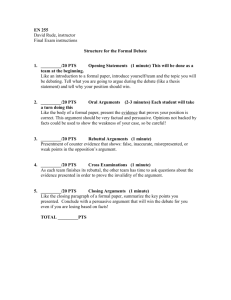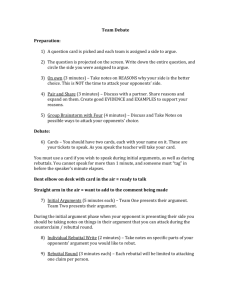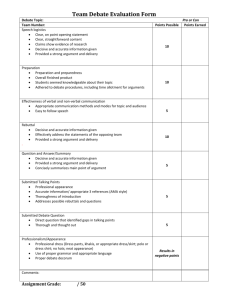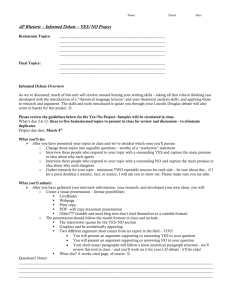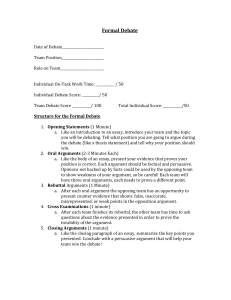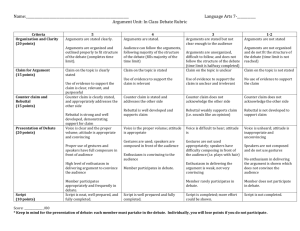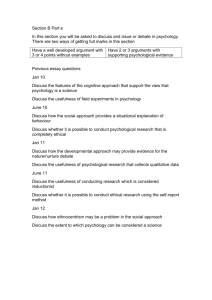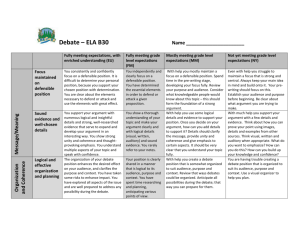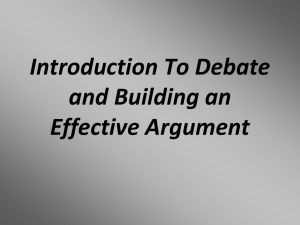Psychology Debate
advertisement
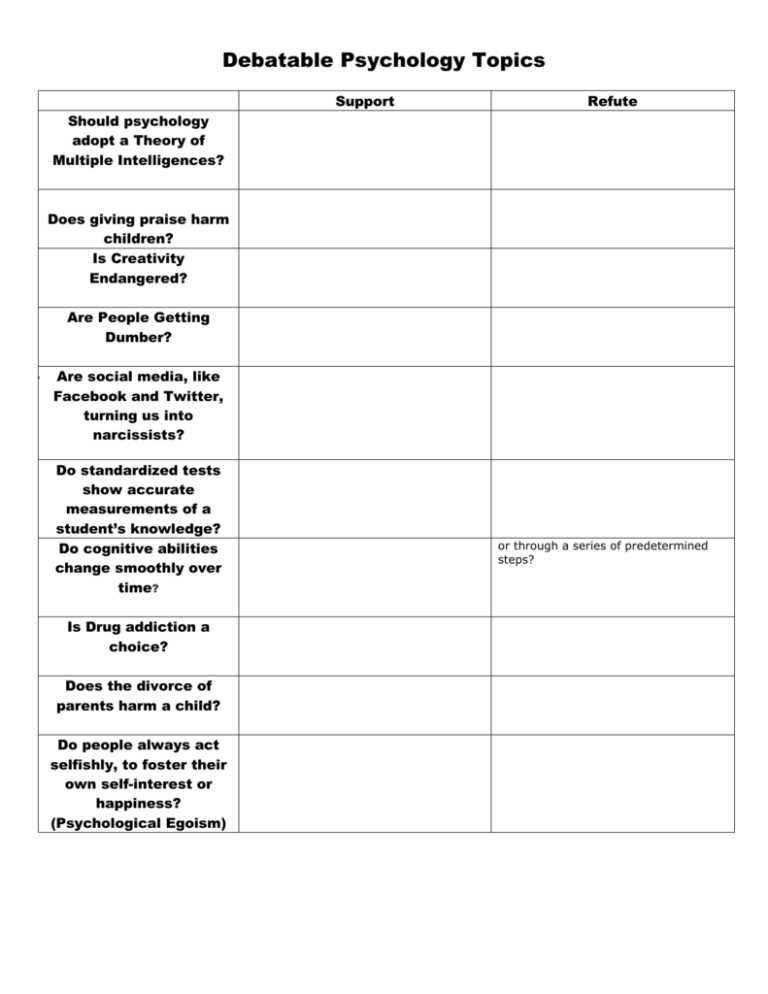
Debatable Psychology Topics Support Refute Should psychology adopt a Theory of Multiple Intelligences? Does giving praise harm children? Is Creativity Endangered? Are People Getting Dumber? Are social media, like Facebook and Twitter, turning us into narcissists? Do standardized tests show accurate measurements of a student’s knowledge? Do cognitive abilities change smoothly over time? Is Drug addiction a choice? Does the divorce of parents harm a child? Do people always act selfishly, to foster their own self-interest or happiness? (Psychological Egoism) or through a series of predetermined steps? Psychology Debate Worth 50 points, Due Wed. 11/13 You must follow the guidelines of a debate and you must include an outline. DO NOT JUST WING IT! 1. 2. 3. 4. 5. Structure for the Formal Debate Opening Statements (1 minute) 5 points Like an introduction to a formal paper, introduce yourself/team and the topic you will be debating. Tell what you are going to argue during the debate (like a thesis statement) and tell why your position should win. Oral Arguments (2-3 minutes) 15 points Like the body of a formal paper, present the evidence that proves your position is correct. This argument should be very factual and persuasive. Opinions not backed by facts could be used to show the weakness of your case, so be careful! Provide your sources on where you gathered these facts! Rebuttal Arguments (1 minute) 10 points Presentment of counter evidence that shows: false, inaccurate, misrepresented, or weak points in the opposition’s argument. Cross Examinations (1 minute) 10 points As each team finishes its rebuttal, the other team has time to ask questions about the evidence presented in order to prove the invalidity of the argument. Closing Arguments (1 minute) 5 points Like the closing paragraph of a formal paper, summarize the key points you presented. Conclude with a persuasive argument that will win the debate for you even if you are losing based on facts! 5 points for speaking clearly and being professional Psychology Debate Worth 50 points, Due Wed. 11/13 You must follow the guidelines of a debate and you must include an outline. DO NOT JUST WING IT! Structure for the Formal Debate 1. Opening Statements (1 minute) 5 points Like an introduction to a formal paper, introduce yourself/team and the topic you will be debating. Tell what you are going to argue during the debate (like a thesis statement) and tell why your position should win. 2. Oral Arguments (2-3 minutes) 15 points Like the body of a formal paper, present the evidence that proves your position is correct. This argument should be very factual and persuasive. Opinions not backed by facts could be used to show the weakness of your case, so be careful! Provide your sources on where you gathered these facts! 3. Rebuttal Arguments (1 minute) 10 points Presentment of counter evidence that shows: false, inaccurate, misrepresented, or weak points in the opposition’s argument. 4. Cross Examinations (1 minute) 10 points As each team finishes its rebuttal, the other team has time to ask questions about the evidence presented in order to prove the invalidity of the argument. 5. Closing Arguments (1 minute) 5 points Like the closing paragraph of a formal paper, summarize the key points you presented. Conclude with a persuasive argument that will win the debate for you even if you are losing based on facts! 5 points for speaking clearly and being professional

